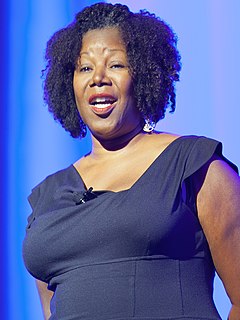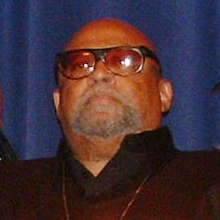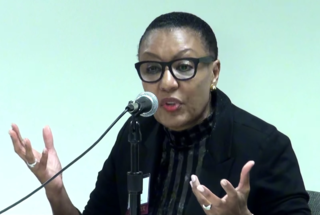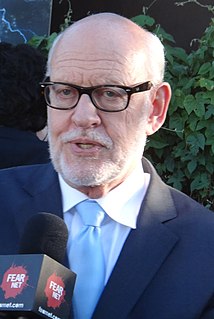A Quote by Ruby Bridges
As African-Americans, people of that generation felt pretty much if they were going to see changes in the world, they had to make sacrifices and step up to the plate. I'm very proud that my parents happened to be people who did. They were not privileged to have a formal education.
Related Quotes
I'm grateful to see my work flourish in my lifetime. Many of the great people in our history were not able to see how much their work, suffering and sacrifices enriched our lives and pushed our struggle forward. But I've been blessed to see my work begin in a family home, spread around the world and be embraced by millions of African people throughout the world African community.
I did go to Vietnam in 2000 as a kind of pilgrimage and to feel my generation was very much a part of this. I felt responsible but also connected and empathetic. It was a very complicated relationship we had, whichever side you were on. The shock of being there was very few people my own age - I was primarily in the North in the streets of Hanoi. A whole generation was essentially decimated.
My parents were very, very close; they pretty much grew up together. They were born in 1912. They were each other's only boyfriend and girlfriend. They were - to use a contemporary term I hate - co-dependent, and they had me very late. So they had their way of doing things, and they reinforced each other.
I learned a lot about my parents, who were both teachers. I had known that my parents were very strongly in favor of education. I had known that they had an impact on a lot of people, but people came out of the woodwork who have said, "You know, without your father, I would never have gone to college," very successful people. And so I learned how widespread their educational evangelism really was.
I had very supportive parents that made the way for me, even at a time when there were very few women - no women, really; maybe two or three women - and very few, fewer than that, African-American women heading in this direction, so there were very few people to look up to. You just had to have faith.
I'm most proud of my kids, for one, and my family and my parents. Outside of that - what am I proud of? I don't know. I don't look back, I just go forward. I'm just proud of the fact that my parents were immigrants and we had nearly nothing, and all of the sudden, with the help of a lot of people and my parents as a model, I amounted to something. And I'm doing some very decent work.
I'm first generation American, and my parents were both from Nigeria. And so I always say that I'm literally an African American. So my last name is Famuyiwa, it's different. And so that was a part of my experience from people not being able to pronounce it to not sort of having sort of a shared, common history with a lot of the kids that I was growing up with because my parents were from Africa.
I don't think there are any pure Africans of the African Americans, but the African part of our history was pretty much taken away from us during slavery, so the 60s gave us a chance, because of the civil rights movement, to kind of re-examine and make some sort of formal connection to our African-ness.
We were segregated throughout the community, and it was pretty brutal, actually. It didn't appear to be, on the surface.People got along and we had great relationships, but there was discrimination that impacted adversely the ability of the African-American community to progress. People did not - were in denial about that fact.
It became obvious to me that the generation who changed the world were my parents' generation, and not only in terms of the Second World War, but if you look at all the social legislation of the '60s - abortion, homosexual law reform, equal pay - it wasn't done by my generation; it was done by people who were adults.
Art and education may refine the taste, but they cannot purify the heart and regenerate the individual. His (Christ’s) words were simple yet profound. And they shook people, provoking either happy acceptance or violent refection. People were never the same after listening to him….The people who followed Him were unique in their generation. They turned the world upside down because their hearts had been turned right side up. The world has never been the same.
We were always told we were one step behind Deep Purple, one step behind Led Zeppelin, one step behind everybody. Our manager didn't want to let us know how popular we were. It's only after we did Ozzfest that people started telling me stuff. I thought they were taking the piss. People would come up to me and go, "Respect."





































